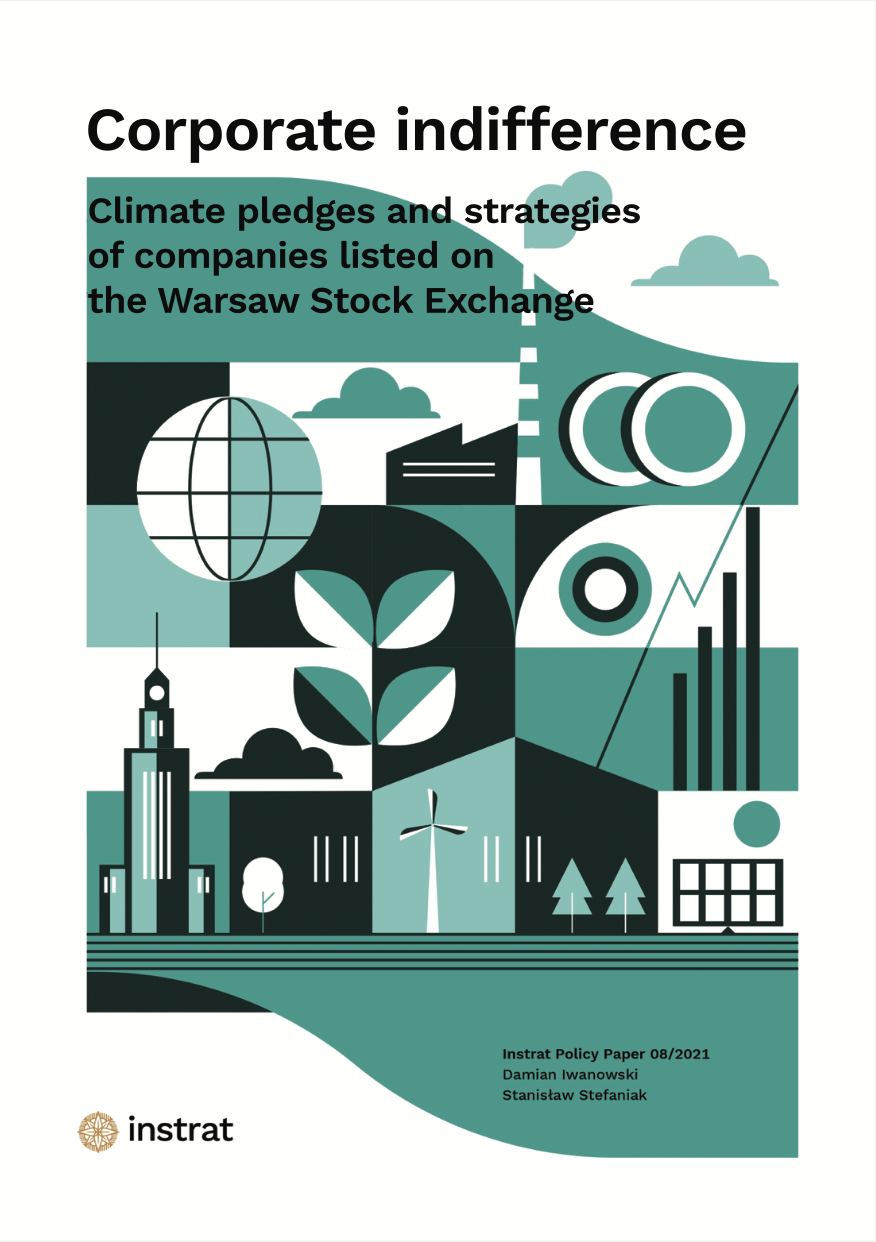Urgent need for corporate climate initiatives implementation – the accomplishment of companies’ voluntary greenhouse gas (GHG) reduction goals is key to achieve the ambitions of the Paris Agreement. Arriving at the temperature pathways specified by the United Nations will only be possible with decisive and timely efforts of the private sector
Overwhelming majority of companies listed on Warsaw Stock Exchange have not set emission reduction targets – only 13 out of the 140 biggest issuers (9,3%) listed on the Warsaw Stock Exchange (comprising the WIG20, mWIG40 and sWIG80 indices) have adopted climate goals, relating to emission reduction or renewable energy use. It is a much lower share compared to more developed capital markets. Out of companies in the Fortune 500 index, 60% have already set climate goals. For the London FTSE100 index, this number stands at 51%, and for the German DAX30 index, at 86%.
Not all published targets are supported by a climate strategy – although all published targets are measurable and contain an end-date, almost a third of them is not accompanied by a climate strategy detailing the means with which the issuer plans to achieve them
Slow pace of adoption of pro-climate actions – during the first three quarters of 2021, only 5 out of 140 researched issuers announced new climate goals. Further three are planning to do so by the end of 2022. Since the beginning of 2021, only three listed company has published its climate strategy.
There are business benefits to setting climate targets. Setting ambitious climate targets and strategies stimulate businesses to implement innovations, increases their competitiveness in the face of rising energy prices, facilitates easier access to financing, and helps to attract qualified specialists.
Considering the growing importance of climate factors in decisions undertaken by investors worldwide, limited activity of the companies listed on the Warsaw Stock Exchange in adopting climate pledges and strategies might not only hinder achieving climate neutrality in Poland by 2050 but also impair the valuation of listed companies in the long run.
To avoid negative consequences, we recommend the following actions:
- Promoting best practices in terms of setting climate goals or strategies and participating in international initiatives certifying progress of companies in reducing GHG emissions.
- Ensuring access to the high-quality, comparable data on activities undertaken by public companies towards reduction of their GHG emissions.
- On this basis, modifying the stock exchange index (WSE-ESG) dedicated for companies pursuing ambitious and feasible climate actions.
- Creating a regulatory framework to obligate selected institutional investors (e.g., pension funds, including Employee Capital Plans) to invest a certain proportion of their assets in companies that adopted credible climate goals and strategies.
We encourage to read the executive summary in English.
Recommended quotation: Iwanowski D., Stefaniak S. (2021). Corporate indifference. Climate pledges and strategies of companies listed on the Warsaw Stock Exchange. Instrat Policy Paper 08/2021.

Publication of this report is accompanied by launch of the esg.instart.pl website which is the first open-source database on the climate pledges and strategies adopted by the companies listed on the Warsaw Stock Exchange. We hope that the platform will improve quality of evidence used in the climate discourse between the participants of the capital market and will empower investors to broader consideration of climate factors in investments decisions. We aim to produce a tool that would facilitate monitoring of progress in implementing climate pledges by the WSE-listed entities.
We invite you to visit the esg.instrat.pl platform regularly and follow new publications, updated datasets and news about upcoming events regarding corporate climate action undertaken by companies listed on the Warsaw Stock Exchange companies.


